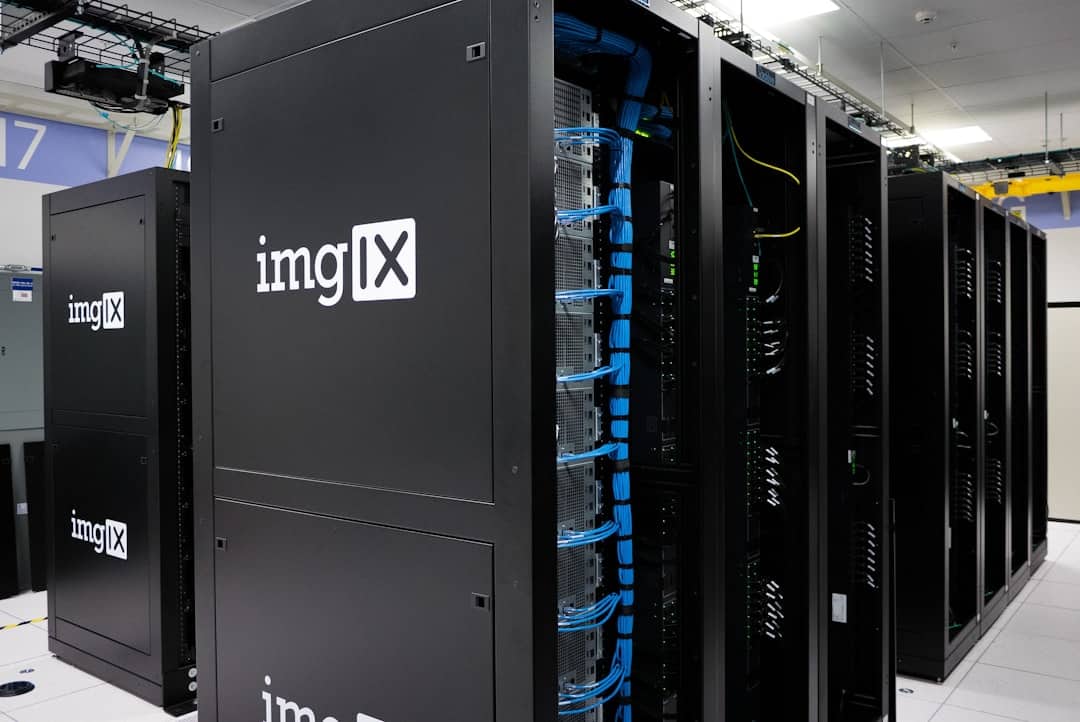Machine learning is a branch of artificial intelligence that develops algorithms and models enabling computers to learn and make decisions without explicit programming. This rapidly advancing field has the potential to transform industries by automating processes, identifying patterns, and facilitating data-driven decision-making. Machine learning algorithms can analyze vast amounts of data to uncover insights, detect anomalies, and optimize processes, leading to increased efficiency and productivity.
The growing availability of big data and improvements in computing power have made machine learning more accessible and applicable across various sectors, including healthcare, finance, manufacturing, and retail. Machine learning encompasses several techniques, such as supervised learning, unsupervised learning, and reinforcement learning. Supervised learning involves training algorithms on labeled data to make predictions or classifications, while unsupervised learning focuses on discovering patterns and relationships in unlabeled data.
Reinforcement learning trains algorithms to make sequential decisions in an environment to maximize rewards. These techniques can be applied to various data types, including structured data in databases, unstructured data in text or images, and sequential data in time series or sensor readings. As machine learning continues to progress, it has the potential to revolutionize industries through automation, personalization, and process optimization.
Key Takeaways
- Machine learning is a subset of artificial intelligence that enables systems to learn and improve from experience without being explicitly programmed.
- Machine learning is being used in various industries such as healthcare, finance, retail, and manufacturing to improve processes, make predictions, and automate tasks.
- The impact of machine learning on business operations includes improved decision-making, increased efficiency, and the ability to personalize customer experiences.
- Challenges in implementing machine learning include data quality, lack of skilled professionals, and ethical considerations, while opportunities include cost savings, competitive advantage, and innovation.
- Case studies of successful machine learning integration include Netflix’s recommendation system, Amazon’s personalized shopping experience, and Google’s language translation services.
- Future trends in machine learning include the rise of deep learning, increased automation, and the potential for industry revolution through the use of advanced algorithms and data analytics.
- In conclusion, machine learning is playing a crucial role in shaping the future of industries by driving innovation, improving processes, and creating new opportunities for growth and development.
Applications of Machine Learning in Various Industries
Machine learning has found applications in a wide range of industries, revolutionizing processes and driving innovation. In healthcare, for example, machine learning algorithms are being used to analyze medical images for early detection of diseases, predict patient outcomes based on electronic health records, and personalize treatment plans based on genetic data. This has the potential to improve patient care, reduce healthcare costs, and accelerate medical research.
In finance, machine learning is being used for fraud detection, risk assessment, algorithmic trading, and personalized financial services. By analyzing large volumes of financial data in real time, machine learning algorithms can identify fraudulent transactions, assess credit risk, and optimize investment strategies. In manufacturing, machine learning is being applied to predictive maintenance, quality control, and supply chain optimization.
By analyzing sensor data from equipment and production processes, machine learning algorithms can predict equipment failures, detect defects in products, and optimize inventory management. This can lead to reduced downtime, improved product quality, and cost savings. In retail, machine learning is being used for demand forecasting, personalized marketing, and recommendation systems.
By analyzing customer data and purchase history, machine learning algorithms can predict future demand, personalize marketing campaigns, and recommend products to customers. This can lead to increased sales, customer satisfaction, and loyalty.
Impact of Machine Learning on Business Operations

The impact of machine learning on business operations is profound, as it enables organizations to automate processes, gain insights from data, and make data-driven decisions. By automating repetitive tasks and workflows, machine learning can free up human resources to focus on more strategic and creative endeavors. This can lead to increased productivity, efficiency, and innovation within organizations.
Machine learning also enables organizations to gain insights from large volumes of data that would be impossible for humans to analyze manually. By uncovering patterns, trends, and anomalies in data, machine learning algorithms can provide valuable insights that can inform decision-making and strategy development. Furthermore, machine learning enables organizations to make data-driven decisions by predicting outcomes and optimizing processes.
By using historical data to train predictive models, organizations can forecast future trends, identify opportunities, and mitigate risks. This can lead to improved decision-making, resource allocation, and performance optimization. Overall, the impact of machine learning on business operations is transformative, as it enables organizations to automate processes, gain insights from data, and make data-driven decisions that drive innovation and competitive advantage.
Challenges and Opportunities in Implementing Machine Learning
| Challenges | Opportunities |
|---|---|
| Data Quality | Access to large datasets |
| Model Interpretability | Improved decision making |
| Computational Resources | Advancements in hardware |
| Regulatory Compliance | Enhanced automation |
While the potential benefits of implementing machine learning are significant, there are also challenges that organizations must overcome to successfully integrate machine learning into their operations. One of the main challenges is the availability of high-quality data for training machine learning models. Without sufficient and relevant data, machine learning algorithms may not be able to learn effectively or make accurate predictions.
Organizations must invest in data collection, storage, and quality assurance to ensure that they have the necessary data for training machine learning models. Another challenge is the shortage of skilled professionals with expertise in machine learning. As the demand for machine learning talent continues to grow, organizations may struggle to find and retain qualified professionals who can develop and deploy machine learning solutions.
This highlights the need for investment in training and education to build a workforce with the necessary skills for implementing machine learning. Additionally, organizations must consider ethical and regulatory considerations when implementing machine learning, such as privacy concerns and bias in algorithms. Despite these challenges, there are also opportunities for organizations to leverage machine learning to drive innovation and competitive advantage.
By investing in machine learning capabilities, organizations can automate processes, gain insights from data, and make data-driven decisions that lead to improved efficiency and productivity. Machine learning also enables organizations to personalize products and services for customers, optimize supply chain operations, and improve decision-making across various functions. Overall, the successful implementation of machine learning presents opportunities for organizations to transform their operations and gain a competitive edge in the market.
Case Studies of Successful Machine Learning Integration
Several organizations have successfully integrated machine learning into their operations to drive innovation and achieve business objectives. For example, Amazon has leveraged machine learning for its recommendation system to personalize product recommendations for customers based on their browsing and purchase history. This has led to increased sales and customer satisfaction for the e-commerce giant.
Another example is Netflix, which uses machine learning algorithms to personalize content recommendations for its users based on their viewing history. This has contributed to increased user engagement and retention for the streaming service. In healthcare, IBM Watson has been used to analyze medical images and patient records to assist healthcare professionals in diagnosing diseases and developing personalized treatment plans.
This has the potential to improve patient outcomes and reduce healthcare costs by leveraging machine learning for medical decision support. In finance, PayPal has implemented machine learning for fraud detection to identify suspicious transactions in real time and prevent fraudulent activities. This has led to reduced financial losses and increased security for the payment platform.
These case studies demonstrate the diverse applications of machine learning across industries and the potential impact on business outcomes. By leveraging machine learning capabilities, organizations can automate processes, personalize products and services for customers, gain insights from data, and make data-driven decisions that drive innovation and competitive advantage.
Future Trends in Machine Learning and Industry Revolution

Looking ahead, there are several future trends in machine learning that have the potential to revolutionize industries and drive innovation. One trend is the increasing adoption of deep learning techniques for processing unstructured data such as images, videos, and natural language. Deep learning algorithms have shown promise in applications such as image recognition, speech recognition, language translation, and autonomous vehicles.
As deep learning continues to advance, it holds the potential to transform industries by enabling new capabilities and applications that were previously not possible. Another trend is the integration of machine learning with other emerging technologies such as Internet of Things (IoT) and edge computing. By combining machine learning with IoT devices and edge computing infrastructure, organizations can analyze real-time sensor data at the source and make immediate decisions without relying on centralized cloud servers.
This has the potential to enable new applications such as predictive maintenance for industrial equipment, real-time monitoring for healthcare devices, and autonomous operations for vehicles. Furthermore, there is a growing focus on ethical considerations in machine learning to address issues such as bias in algorithms, privacy concerns, and transparency in decision-making. As machine learning becomes more pervasive in society, there is a need to ensure that it is used responsibly and ethically to avoid unintended consequences or harm.
This includes developing frameworks for ethical AI design, establishing guidelines for responsible use of machine learning, and promoting diversity in the development of AI systems. Overall, these future trends in machine learning have the potential to revolutionize industries by enabling new capabilities, applications, and ethical considerations that drive innovation and societal impact.
The Role of Machine Learning in Shaping the Future of Industries
In conclusion, machine learning has the potential to revolutionize industries by enabling automation, personalization, optimization of processes through its diverse applications across various sectors such as healthcare finance manufacturing retail among others . By leveraging machine learning capabilities organizations can automate processes personalize products services for customers gain insights from data make data-driven decisions that drive innovation competitive advantage . While there are challenges such as availability high-quality data shortage skilled professionals ethical regulatory considerations there are also opportunities for organizations leverage machine learning drive innovation competitive advantage .
Several case studies demonstrate successful integration of machine learning into operations drive innovation achieve business objectives . Looking ahead future trends in machine learning such as deep learning integration with IoT edge computing ethical considerations have potential revolutionize industries drive innovation societal impact . Overall role of machine learning shaping future industries profound as it enables organizations automate processes gain insights from data make data-driven decisions drive innovation competitive advantage .
Machine learning has been making significant advancements in various industries, including healthcare and wellness. According to a related article on Metaversum, the metaverse is also set to revolutionize the healthcare industry by providing virtual environments for medical training, patient care, and wellness programs. This integration of machine learning and the metaverse in healthcare is expected to improve patient outcomes and revolutionize the way healthcare professionals deliver care. To learn more about this intersection of technology and healthcare, you can read the full article here.
FAQs
What is machine learning?
Machine learning is a subset of artificial intelligence that involves the development of algorithms and statistical models that enable computers to improve their performance on a specific task through experience, without being explicitly programmed.
How does machine learning work?
Machine learning algorithms use training data to learn patterns and make predictions or decisions without being explicitly programmed. The algorithms are trained using labeled data, and then they make predictions or decisions based on new, unseen data.
What are the types of machine learning?
There are three main types of machine learning: supervised learning, unsupervised learning, and reinforcement learning. Supervised learning involves training a model on labeled data. Unsupervised learning involves finding patterns in unlabeled data. Reinforcement learning involves training a model to make sequences of decisions.
What are some applications of machine learning?
Machine learning is used in a wide range of applications, including image and speech recognition, medical diagnosis, recommendation systems, financial forecasting, and autonomous vehicles.
What are some popular machine learning algorithms?
Some popular machine learning algorithms include linear regression, logistic regression, decision trees, random forests, support vector machines, k-nearest neighbors, and neural networks.
What are the benefits of machine learning?
Machine learning can automate and optimize complex tasks, improve decision-making processes, and uncover insights from large datasets. It can also lead to the development of innovative products and services.











Leave a Reply